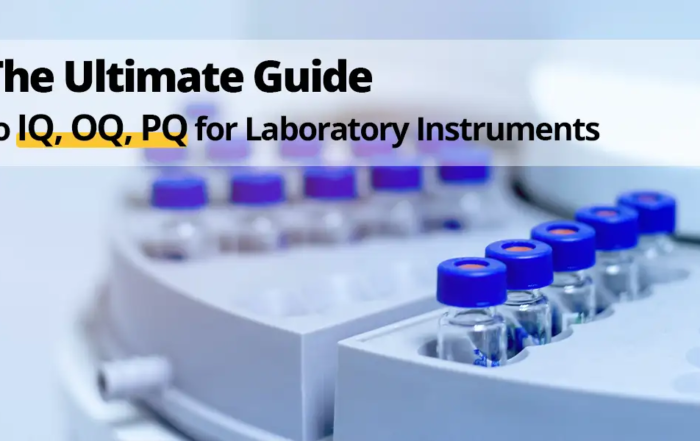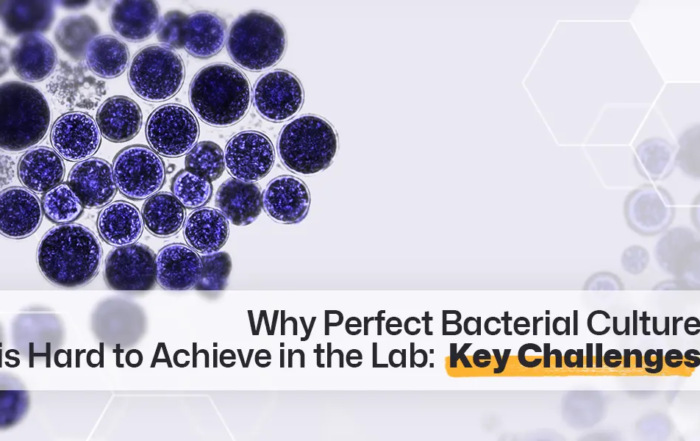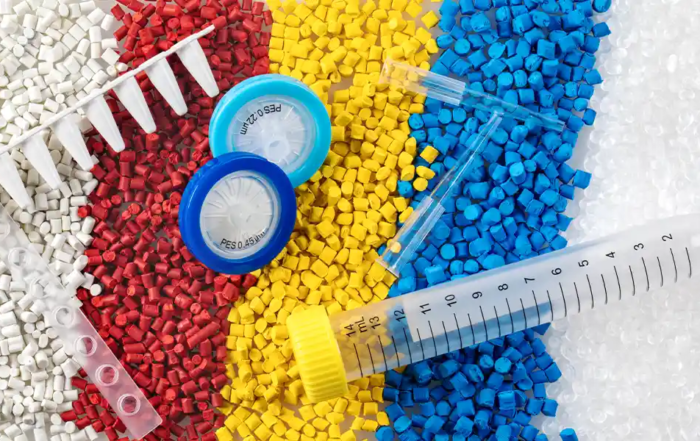Table of Content

The global biotechnology industry is made up of an extensive range of companies involved in various activities such as developing biopharmaceuticals, genetic mapping, biomedical research, and creating genetically modified crops. In recent years, the industry has witnessed rapid growth and this trend is likely to continue. The global biotechnology market is expected to expand at 9.9% CAGR and surpass $775 billion by 2024 as per a new research report by Global Market Insights, Inc.
The modern biotech industry has come a long way. Advanced healthcare infrastructure, favorable government policies, and rising R&D spending are responsible for its rapid advancement. Apart from these, the use of innovative technologies and the progress in the field of Artificial Intelligence (AI) are other significant contributing factors to the growth of biotech.
Let’s take a look at the role AI is playing in the biotechnology industry now and will play in the future.
1. Medical Diagnostics
Medical diagnostics is one of the primary areas in biotech that has benefited from advancements in AI. The perfect combination of AI and biotechnology is now allowing medical researchers to diagnose and treat diseases in a relatively faster and less invasive fashion.
Researchers are now using deep learning in pathology to conduct quicker and more accurate laboratory analysis of bodily fluids. AI, along with facial recognition software, is being used to diagnose rare genetic diseases. These powerful AI algorithms are learning to detect various phenotypes related to particular genetic disorders.
Deep learning is also making progress in oncology. It is now playing a crucial role in the early detection of cancer. For example, Stanford University researchers managed to build an AI tool that uses deep convolutional neural networks (CNN) to classify different types of skin cancers. It has achieved the accuracy of board-certified dermatologists.
It performs classification using a dataset of 129,450 photographic and dermoscopic images consisting of 2,032 different diseases. It will allow users to identify skin cancer using their smartphone, providing low-cost access to essential diagnostic care. The subscription is expected to reach 6.3 billion users by 2021.
2. Laboratory Management and Assistance
Running a biotech laboratory is expensive, time-consuming, and tedious. It also involves a lot of manual work. However, with advanced machine learning and AI capabilities, things are taking a turn for the better.
For example, in clinical trials, you have to track whether patients are taking the drug under experiment as prescribed. For many biopharmaceutical companies, patients missing their medication or lying about it is a vital concern.
Unfortunately, traditional manual tracking of medication ingestion is still prone to errors. So, AiCure came up with an AI-based solution. It uses patented AI on mobile devices to confirm medication ingestion by patients.
When taking the pill, patients have to open the app and hold the phone to their face. They can open their mouth, put the medicine in, swallow it, and open their mouth again in front of the phone. AiCure will check if patients have ingested the medicine and notify the concerned personnel immediately.
NeuroBo Pharmaceuticals has already chosen the AiCure platform to provide behavioral insights around diabetic patients participating in their clinical trial for neuropathic pain. They will also integrate patient-reported outcomes and micro-reimbursements within AiCure’s platform to create a better experience for all concerned individuals.
Similarly, Desktop Genetics has developed an AI tool that can design custom CRISPR libraries or gene editing constructs. From selecting the right single guide RNA molecules to analyzing experiment data, the AI tool can help scientists with the entire process.
It uses data from previous large-scale CRISPR experiments, published work, as well as personal genomics data from sequencing to design the best possible gene editing constructs using CRISPR. So far, the AI tool has collected more than four million data points from CRISPR experiments. As this number continues to grow, so will the AI tool’s accuracy.
3. Drug Discovery
The third, and perhaps the most exciting AI-related advancement has been in the area of drug discovery. Several leading biotech and biopharma companies have started using AI and machine learning to facilitate the complicated drug discovery process. The present process is not only slow, but also expensive and inefficient. Very few drugs manage to make it from phase 1 to commercialization.
However, AI is likely to turn this picture around. While some AI startups are leveraging the increasing amount of genetic data to speed up drug discovery, others are using AI-based computer programs to screen target compounds, molecules, and proteins to identify the potential drug quickly. They are looking for compounds or molecules that show the most promising results for further testing. Researchers are also using AI to optimize protocols by simulating different clinical study designs to find the most suitable ones.
Being one of the first companies to embrace AI and machine learning, Pfizer announced a partnership with IBM Watson Health in December 2016. Since then, it has been using IBM Watson for Drug Discovery’s machine learning platform to help identify relationships among genes, drugs, and diseases that may not be apparent to researchers working in silos. AI will help the company sift through massive amounts of data in relatively less time, resulting in accelerated drug discovery.
At Relay Therapeutics, researchers are refining an AI system to improve the drug discovery process. The system can run thousands of molecular simulations to track the trajectories of active and inactive ligands. It uses this data to predict if a novel compound is likely to bind to a particular protein. The system, however, is still being developed. Several other biotech and biopharma companies are leveraging AI in different ways to improve early-stage drug discovery process.
Wrapping Up
As you can see, the role of AI in the biotechnology sector will only rise in the coming years. How profoundly it will change the biotech industry is a matter of debate for now. But, the future looks bright as exciting developments continue to take place in diagnostics, laboratory management, and drug discovery areas. The question is, will you be riding this change or be left behind?
Don’t forget to check out our featured products:
The Ultimate Guide to IQ, OQ, PQ for Laboratory Instruments
In today’s highly regulated laboratory environments, ensuring the accuracy, reliability, and compliance of instruments is not optional—it’s essential. This is where 3Q validation comes into play. Comprised of Installation Qualification (IQ), Operational Qualification (OQ), and [...]
Why Perfect Bacterial Culture is Hard to Achieve in the Lab: Key Challenges
There's a running joke in biology labs: You can see bacteria everywhere except in the petri dish. There are also many similar bacterial culture memes online. Obviously, cultivating a “perfect” bacterial flora—a diverse, balanced, [...]
How to choose lab plastic consumables? A complete analysis of material characteristics and application scenarios
What is the most common material in the laboratory? The answer is often "plastic". Plastics are indispensable in modern laboratories, playing a crucial role in ensuring the efficiency, safety, and precision of various scientific processes. [...]


